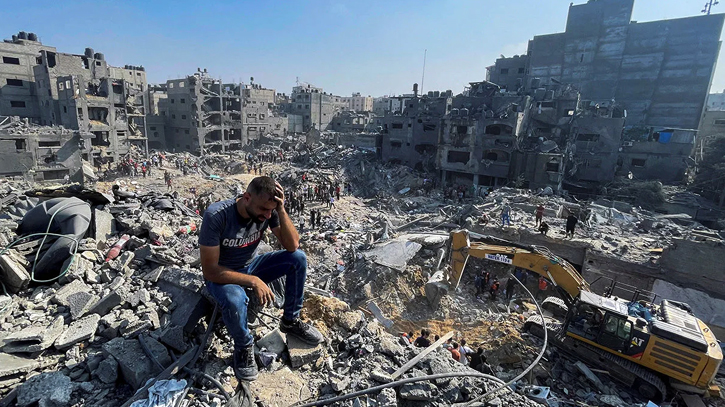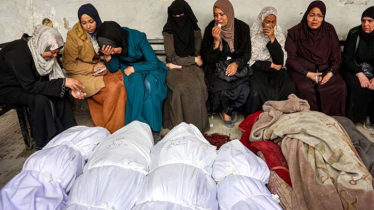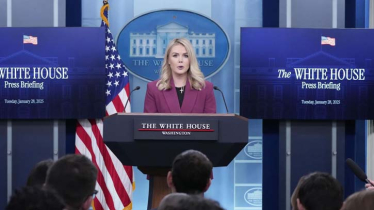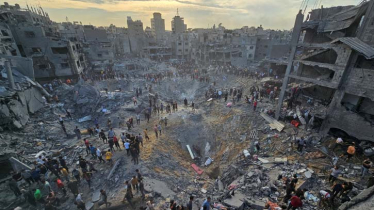
Photo : The Economist
Israel and the Gaza-ruling Islamic Resistance Movement (Hamas) confirmed on Wednesday (22 November) a cease-fire agreement in the conflict-ridden Gaza Strip for four days, to allow for more aid delivery to Gaza as well as the exchange of Israeli hostages held by the armed Palestinian faction and Palestinian prisoners jailed in Israel.
The humanitarian pause, mediated by joint Qatari, Egyptian and U.S. efforts, would enable the release of 50 hostages held in Gaza, mainly children and women and most are foreign nationals, in exchange for about 150 female and teenage Palestinians jailed in Israel, the Israeli presidency and a top Hamas official revealed separately.
Hamas politburo member Moussa Abu Marzouk told Al Jazeera on Wednesday that the cease-fire in Gaza will begin at 10am local time (0800 GMT) on Thursday (23 November).
The hostages will be released in smaller groups over a span of four days, during which "there will be a pause in the fighting," said the statement from Israeli Prime Minister Benjamin Netanyahu's office, adding that the release of every additional 10 hostages will result in one additional day in the pause.
A Hamas source told Xinhua that Hamas and Israel were still finalizing on Wednesday night their respective swap list that would be handed to each other.
According to the source, the two sides would pause fighting simultaneously when the time comes, and Hamas would send the first batch of hostages to Red Cross personnel. The latter would then transfer them onward to Israel after the Israeli side confirmed their identities, after which the Israeli side would release a batch of Palestinian prisoners to their residences in the West Bank.
Under the agreement, more truckloads of humanitarian aid, medicine, and fuel will be allowed to enter Gaza through the Rafah border crossing with Egypt. Israel would also pause aerial surveillance on Gaza for six hours starting 10am local time daily.
Had the cease-fire and swap deal been commenced, it would be the first step to suspend hostilities between the two sides since the start of the conflict.
Israeli newspaper Times of Israel reported earlier in the day that the cease-fire might extend for 10 days to allow for the release of up to 300 Palestinian prisoners in exchange for 100 Israeli hostages from Gaza.
Responding to the list circulated among Israeli media, Thaer Shriteh, spokesman for the Prisoners and Ex-Prisoners Affairs Authority of the Palestine Liberation Organization, said the list includes prisoners with lengthy sentences and those who have spent years in Israeli prisons.
Palestinian sources familiar with the affairs told Xinhua that the published list includes 221 names from the West Bank, 74 from Jerusalem, and five from Gaza, and among them 47 were affiliated with Hamas.
Palestinian President Mahmoud Abbas and the PLO leadership welcomed the humanitarian cease-fire deal and appreciated the Qatari and Egyptian efforts in this regard, Hussein Al-Sheikh, secretary-general of the PLO Executive Committee said in a statement on Wednesday.
He added, "We renew the call for a comprehensive halt to the Israeli aggression against the Palestinian people, the entry of humanitarian aid, and the implementation of a political solution based on international legitimacy leading to ending the occupation and achieving freedom, independence, and sovereignty for the Palestinian people."
Israel has been carrying out attacks on Gaza over the past weeks to retaliate against the Hamas surprise attack on southern Israel on Oct. 7, during which Hamas militants killed about 1,200 people and took more than 200 hostages.
A total of 14,532 Palestinians have died, more than 35,000 others were injured since the start of the current Israel-Hamas conflict, the Hamas-run government media office said Wednesday.
Messenger/Sun Yath








